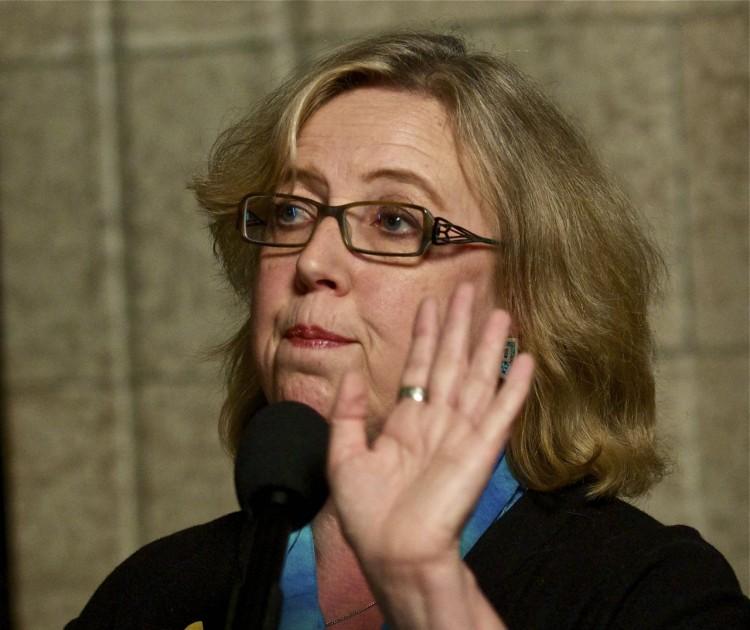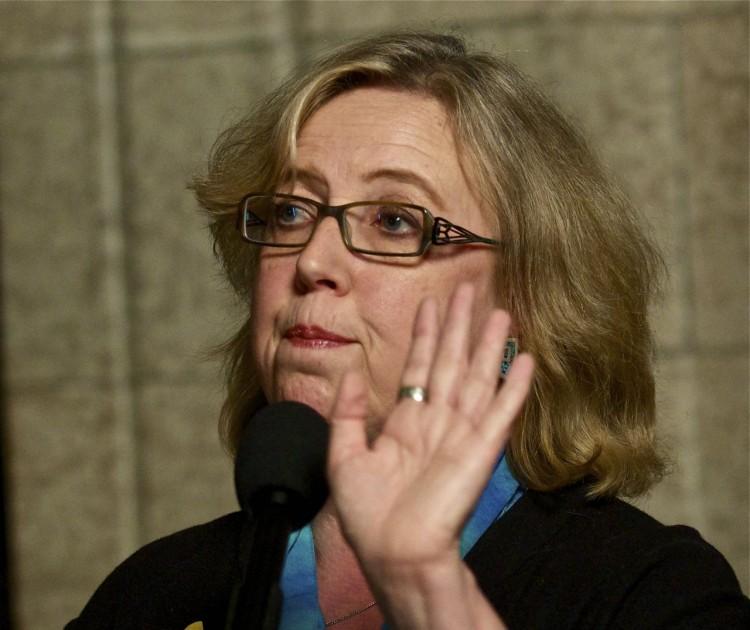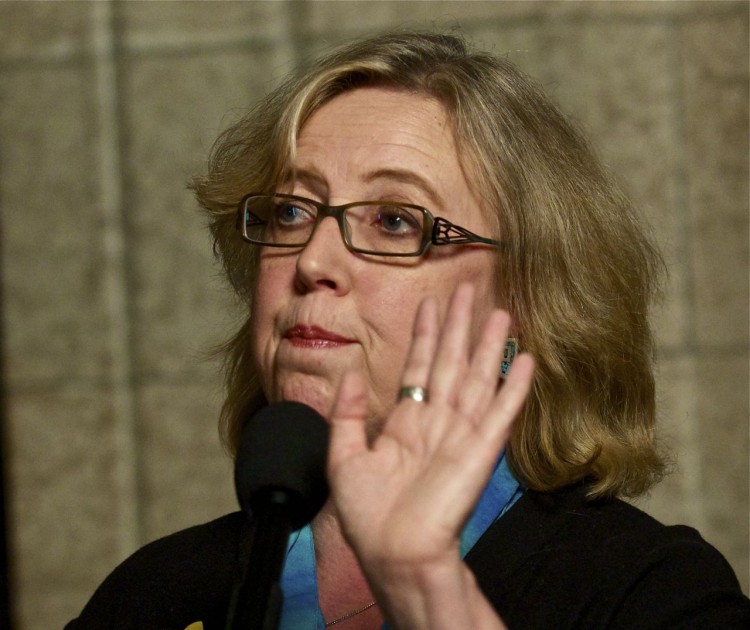PARLIAMENT HILL—Do not ask for whom the bells toll, Members of Parliament, they toll for you and may toll over and over again for days on end as opposition MPs do everything possible to amend the government’s omnibus budget bill.
In Parliament, bells ring to let the MPs know it is time to vote in the House of Commons. With the government working to speed the passage of C-38, its far-reaching and multi-faceted budget implementation act, opposition MPs are pulling out all the stops to amend the bill, delay its passage, or even—however unlikely—topple the government.
With relatively few avenues open to stop the bill, opposition parties will trigger hundreds of votes on amendments to the bill. Serial votes don’t require another tolling of the bells, but missing a vote could be a death knell for the government, according to the Official Opposition.
Bill C-38 lays out an ambitious plan to overhaul Canada’s environmental protection legislation while simultaneously amending immigration, the Canadian Pension Plan, Old Age Security, and includes an act to implement a framework of cross-border security operations with the United States, among other provisions.
The scope of C-38 marks a new high-water mark, says parliamentary expert Ned Franks, though budget implementation bills have ballooned in scope in recent decades.
“There was nothing like the current budget implementation act until roughly 20 years ago,” he said.
Prior to then, such bills were a couple of pages in length.
“They’ve gradually grown after that until they reached this modern mammoth size,” he said, adding the current bill is an order of magnitude above previous examples.
Franks notes that Parliament has tried to discourage such bills, but governments like them because of the legislative deal they offer in the form of passing several pieces of legislation through one debate and review process.
“It’s like going bargain hunting when you get ten for the price of one.”
But Franks said such bills are dangerous in that they receive less time for scrutiny and debate. The current bill represents about 40 percent of the government’s non-financial legislation, he said.
Similar Scenario in 2010
In 2010, the Senate attempted to break up a similar, though smaller, budget bill that included plans to sell off Atomic Energy of Canada Ltd and modify environmental legislation.
The Liberals, then the Official Opposition, passively supported that budget by not turning out in full force to oppose it, thus avoiding an election that polls indicated they would lose.
In the Senate, the Liberals, combined with independents, held a majority of seats but failed by four votes in an effort to break the bill into its constituent parts.
This time around the Tories have a majority in the upper house, and senate committees are already holding marathon meetings to review C-38. While the Senate usually reviews a bill after it passes the House, by doing so concurrently the bill can be passed weeks earlier than otherwise possible.
The scope of C-38 has opposition MPs ready to forgo sleep and sustenance to fight it.
The NDP, Liberals, and lone Green Elizabeth May have prepared hundreds of amendments, each calling for a vote, in a process that could take days.
With MPs required to be in their seat when a vote is called, that would leave little time for food and bathroom breaks, let alone anything resembling a proper night’s sleep if the votes are held one after another.
It’s a strategy first proposed by May, who has more leeway to move substantial amendments to the bill at its last stage in the House of Commons because she has no seat at the finance committee and the opportunity that would offer to move amendments at the committee stage.
NDP whip Nathan Cullen said Tuesday that his party would move complimentary motions including some 200 amendments to delete portions of the bill. Hundreds more will come from May and the Liberals.
Bill ‘undemocratic,’ Says NDP
Cullen decried the relative lack of scrutiny the provisions in the bill have received, describing the process as undemocratic.
“With so many diverse areas of Canadian law being under attack, the study has been insufficient and offensive,” Cullen said.
He said the Conservatives have dug themselves a hole by making the budget so far-reaching, with hundreds of confidence votes now before it.
“We believe these measures to be confidence. If the votes go on for hours and hours, perhaps days, the government has to get every single vote right. It can’t screw one up,” he said.
“They can’t have members falling asleep, going home and not coming back for votes, missing votes, because if they miss any of those votes, they put their own government in jeopardy.”
“This is why these bills should have been standalone items.”
Cullen said that on their own, changes to the Fisheries Act or the Employment Insurance Act are not confidence measures, but by being in a budget bill, they are.
Franks disagrees, saying the current bill is not a confidence vote unless the government deems it so, which it has done repeatedly during previous minority parliaments.
No Point in Breaking up Bill
A well-placed source in the government would not comment on whether the votes are confidence measures and said the Conservatives have made no statement to indicate they are.
The source said opposition parties would oppose all measures in the bill regardless, so it makes little sense to break it up. One of the benefits Canada has compared to the United States and many European countries, he noted, is that Parliament is not crippled by contending parties that can make it impossible to get legislation passed.
A PMO spokesperson also disagreed the bill is undemocratic, pointing out that the bill has been studied and debated longer than any budget bill in two decades.
On Monday, May raised a point of order in the house calling for the bill to be thrown out because it did not meet the basic requirement that an omnibus bill be focused on a singular principle or purpose.
Government House Leader Peter Van Loan countered then that the bill is unified by its measures being included in the budget, a point May disagrees with.
It could be days before Speaker Andrew Scheer decides the matter, but the NDP and Liberals have reserved the right to speak to the point of order.
Meanwhile, grassroots opposition has seen protests in several cities, and on Monday hundreds of groups blacked out their websites in a mass protest against the bill.







